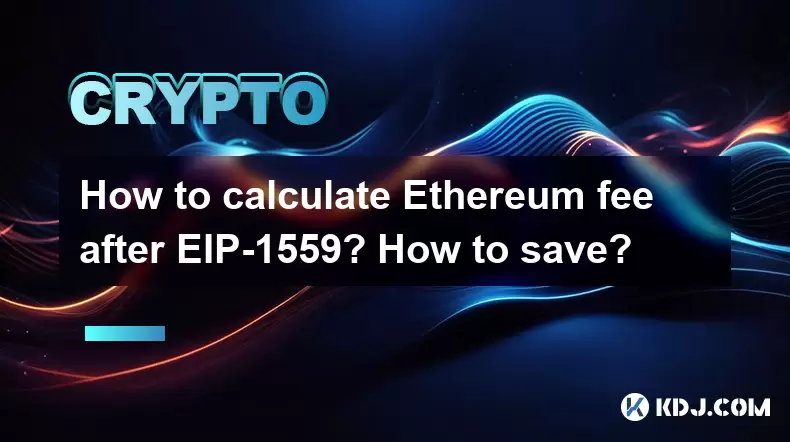-
 Bitcoin
Bitcoin $105,953.9980
3.06% -
 Ethereum
Ethereum $2,445.3292
6.68% -
 Tether USDt
Tether USDt $1.0006
-0.03% -
 XRP
XRP $2.1968
7.03% -
 BNB
BNB $643.2903
2.13% -
 Solana
Solana $144.2799
3.82% -
 USDC
USDC $1.0000
-0.03% -
 TRON
TRON $0.2739
0.49% -
 Dogecoin
Dogecoin $0.1642
4.47% -
 Cardano
Cardano $0.5834
5.49% -
 Hyperliquid
Hyperliquid $38.0741
2.80% -
 Sui
Sui $2.7741
7.56% -
 Chainlink
Chainlink $13.4107
11.26% -
 Bitcoin Cash
Bitcoin Cash $450.4828
-0.61% -
 UNUS SED LEO
UNUS SED LEO $9.1301
0.64% -
 Stellar
Stellar $0.2476
5.49% -
 Avalanche
Avalanche $18.0637
5.09% -
 Toncoin
Toncoin $2.9066
2.43% -
 Shiba Inu
Shiba Inu $0.0...01160
4.01% -
 Hedera
Hedera $0.1527
8.00% -
 Litecoin
Litecoin $84.6122
2.37% -
 Monero
Monero $317.6076
5.76% -
 Ethena USDe
Ethena USDe $1.0008
0.02% -
 Polkadot
Polkadot $3.4519
5.27% -
 Dai
Dai $1.0000
-0.03% -
 Bitget Token
Bitget Token $4.2835
5.62% -
 Uniswap
Uniswap $7.0443
9.78% -
 Pepe
Pepe $0.0...09964
7.41% -
 Pi
Pi $0.5391
4.64% -
 Aave
Aave $264.1743
11.26%
How to calculate Ethereum fee after EIP-1559? How to save?
EIP-1559 changed Ethereum fees: now, total fee = (base fee + priority fee) * gas used. Save by timing transactions and using Layer 2 solutions.
May 09, 2025 at 08:01 am

The introduction of EIP-1559 in August 2021 brought significant changes to the Ethereum network's fee structure, revolutionizing how users interact with transaction costs. This article will delve into the specifics of how to calculate Ethereum fees post-EIP-1559 and offer strategies to save on these fees.
Understanding EIP-1559 and its Components
EIP-1559 fundamentally changed the way Ethereum transaction fees are calculated. Before its implementation, users paid a single "gas price" that covered both the base fee and the miner's tip. Now, the fee structure is divided into two main components:
- Base Fee: This is the minimum amount required to process a transaction on the Ethereum network. The base fee is burned, meaning it is removed from circulation, which can help in reducing the overall supply of Ether over time. The base fee adjusts dynamically based on the network's congestion level.
- Priority Fee (Miner's Tip): This is an optional amount that users can add to their transaction to incentivize miners to include it in the next block. The priority fee goes directly to the miner and is not burned.
How to Calculate Ethereum Fees Post-EIP-1559
To calculate the total fee for an Ethereum transaction after EIP-1559, you need to add the base fee and the priority fee. Here’s how you can do it:
- Step 1: Determine the current base fee of the Ethereum network. This information is readily available on blockchain explorers like Etherscan. The base fee changes with each block based on the network's congestion.
- Step 2: Decide on the priority fee you want to add. This can be zero if you are willing to wait longer for your transaction to be processed, or a higher amount if you need your transaction to be processed quickly.
- Step 3: Calculate the total gas used for your transaction. This depends on the type of transaction you are making (e.g., simple transfer, smart contract interaction).
- Step 4: Multiply the total gas used by the sum of the base fee and the priority fee to get the total transaction fee.
Here’s an example:
- Base Fee: 100 Gwei
- Priority Fee: 2 Gwei
- Gas Used: 21,000
Total Fee = (Base Fee + Priority Fee) Gas Used
Total Fee = (100 + 2) 21,000 = 102 * 21,000 = 2,142,000 Gwei
Strategies to Save on Ethereum Fees
Saving on Ethereum fees involves understanding the dynamics of the network and making informed decisions about when and how to transact. Here are some strategies to help you minimize your costs:
- Timing Your Transactions: Ethereum fees can fluctuate significantly based on network congestion. Monitor the network's activity and try to send transactions during periods of lower activity to benefit from lower base fees.
- Adjusting the Priority Fee: If you are not in a hurry, you can set the priority fee to zero or a very low amount. This might result in a longer wait time, but it can significantly reduce your total transaction cost.
- Using Layer 2 Solutions: Layer 2 scaling solutions like Optimism, Arbitrum, and Polygon can help you save on fees by processing transactions off the main Ethereum chain. These solutions then settle transactions back on the Ethereum network, often at a much lower cost.
- Batching Transactions: If you need to make multiple transactions, consider batching them into a single transaction. This can reduce the overall gas cost compared to sending multiple separate transactions.
Tools and Resources for Fee Estimation
Several tools and resources can help you estimate and manage Ethereum fees effectively:
- Etherscan: This blockchain explorer provides real-time data on the Ethereum network, including the current base fee and average priority fees.
- Gas Now: A tool that offers gas price recommendations to help you optimize your transaction fees.
- MetaMask: This popular Ethereum wallet includes a feature that suggests optimal gas prices based on current network conditions.
Practical Example: Sending an Ethereum Transaction
Let's walk through a practical example of sending an Ethereum transaction using MetaMask, considering the new fee structure:
- Step 1: Open MetaMask and click on "Send".
- Step 2: Enter the recipient's Ethereum address and the amount you want to send.
- Step 3: Click on "Edit" next to "Gas Fee". Here, you'll see the "Estimated Base Fee" and can adjust the "Priority Fee (Tip)" according to your urgency.
- Step 4: Review the "Max Fee" and "Max Priority Fee" settings. The "Max Fee" is the maximum amount you are willing to pay for the transaction, while the "Max Priority Fee" is the maximum tip you are willing to pay to the miner.
- Step 5: Adjust these values based on your strategy to save on fees. If you're not in a hurry, you can set a lower "Max Priority Fee".
- Step 6: Confirm the transaction details and click "Confirm" to send the transaction.
Frequently Asked Questions
Q1: Can I set the priority fee to zero and still have my transaction processed?
Yes, you can set the priority fee to zero, but it may take longer for your transaction to be processed. Miners prioritize transactions with higher priority fees, so setting it to zero means your transaction might wait longer in the mempool.
Q2: How does the base fee burning affect the Ethereum supply?
The base fee burning mechanism removes a portion of the Ethereum supply from circulation with each transaction. This can lead to a deflationary effect on the total supply of Ether over time, depending on the volume and value of transactions.
Q3: Are there any risks associated with using Layer 2 solutions to save on fees?
While Layer 2 solutions can significantly reduce fees, they come with their own set of risks, such as potential security vulnerabilities and the need to bridge funds back to the main Ethereum chain, which can introduce additional complexity and costs.
Q4: How often does the base fee change on the Ethereum network?
The base fee on the Ethereum network changes with each block, which is approximately every 13-15 seconds. This dynamic adjustment helps maintain a consistent block size and manage network congestion.
Disclaimer:info@kdj.com
The information provided is not trading advice. kdj.com does not assume any responsibility for any investments made based on the information provided in this article. Cryptocurrencies are highly volatile and it is highly recommended that you invest with caution after thorough research!
If you believe that the content used on this website infringes your copyright, please contact us immediately (info@kdj.com) and we will delete it promptly.
- Bitcoin Price Soars to $106,596: Is This the Recovery We've Been Waiting For?
- 2025-06-25 12:25:14
- XRP Ledger's New Era: Batch Transactions and Token Escrow Take Center Stage
- 2025-06-25 12:45:12
- JasmyCoin: Price Prediction & the Quest for New Highs
- 2025-06-25 12:25:14
- Arctic Pablo Coin: The Meme Coin Primed for Lift-Off? Plus, Bonk & SHIB Updates!
- 2025-06-25 12:45:12
- BigBear.ai, AMD, QuantumScape: Stocks Soar and Solid-State Batteries Get Real!
- 2025-06-25 12:50:13
- Bitcoin, Ethereum, and the Iran-Israel Ceasefire: A Crypto Market Update
- 2025-06-25 13:05:13
Related knowledge

How to customize USDT TRC20 mining fees? Flexible adjustment tutorial
Jun 13,2025 at 01:42am
Understanding USDT TRC20 Mining FeesMining fees on the TRON (TRC20) network are essential for processing transactions. Unlike Bitcoin or Ethereum, where miners directly validate transactions, TRON uses a delegated proof-of-stake (DPoS) mechanism. However, users still need to pay bandwidth and energy fees, which are collectively referred to as 'mining fe...

USDT TRC20 transaction is stuck? Solution summary
Jun 14,2025 at 11:15pm
Understanding USDT TRC20 TransactionsWhen users mention that a USDT TRC20 transaction is stuck, they typically refer to a situation where the transfer of Tether (USDT) on the TRON blockchain has not been confirmed for an extended period. This issue may arise due to various reasons such as network congestion, insufficient transaction fees, or wallet-rela...

How to cancel USDT TRC20 unconfirmed transactions? Operation guide
Jun 13,2025 at 11:01pm
Understanding USDT TRC20 Unconfirmed TransactionsWhen dealing with USDT TRC20 transactions, it’s crucial to understand what an unconfirmed transaction means. An unconfirmed transaction is one that has been broadcasted to the blockchain network but hasn’t yet been included in a block. This typically occurs due to low transaction fees or network congestio...

How to check USDT TRC20 balance? Introduction to multiple query methods
Jun 21,2025 at 02:42am
Understanding USDT TRC20 and Its ImportanceUSDT (Tether) is one of the most widely used stablecoins in the cryptocurrency market. It exists on multiple blockchain networks, including TRC20, which operates on the Tron (TRX) network. Checking your USDT TRC20 balance accurately is crucial for users who hold or transact with this asset. Whether you're sendi...

What to do if USDT TRC20 transfers are congested? Speed up trading skills
Jun 13,2025 at 09:56am
Understanding USDT TRC20 Transfer CongestionWhen transferring USDT TRC20, users may occasionally experience delays or congestion. This typically occurs due to network overload on the TRON blockchain, which hosts the TRC20 version of Tether. Unlike the ERC20 variant (which runs on Ethereum), TRC20 transactions are generally faster and cheaper, but during...

The relationship between USDT TRC20 and TRON chain: technical background analysis
Jun 12,2025 at 01:28pm
What is USDT TRC20?USDT TRC20 refers to the Tether (USDT) token issued on the TRON blockchain using the TRC-20 standard. Unlike the more commonly known ERC-20 version of USDT (which runs on Ethereum), the TRC-20 variant leverages the TRON network's infrastructure for faster and cheaper transactions. The emergence of this version came as part of Tether’s...

How to customize USDT TRC20 mining fees? Flexible adjustment tutorial
Jun 13,2025 at 01:42am
Understanding USDT TRC20 Mining FeesMining fees on the TRON (TRC20) network are essential for processing transactions. Unlike Bitcoin or Ethereum, where miners directly validate transactions, TRON uses a delegated proof-of-stake (DPoS) mechanism. However, users still need to pay bandwidth and energy fees, which are collectively referred to as 'mining fe...

USDT TRC20 transaction is stuck? Solution summary
Jun 14,2025 at 11:15pm
Understanding USDT TRC20 TransactionsWhen users mention that a USDT TRC20 transaction is stuck, they typically refer to a situation where the transfer of Tether (USDT) on the TRON blockchain has not been confirmed for an extended period. This issue may arise due to various reasons such as network congestion, insufficient transaction fees, or wallet-rela...

How to cancel USDT TRC20 unconfirmed transactions? Operation guide
Jun 13,2025 at 11:01pm
Understanding USDT TRC20 Unconfirmed TransactionsWhen dealing with USDT TRC20 transactions, it’s crucial to understand what an unconfirmed transaction means. An unconfirmed transaction is one that has been broadcasted to the blockchain network but hasn’t yet been included in a block. This typically occurs due to low transaction fees or network congestio...

How to check USDT TRC20 balance? Introduction to multiple query methods
Jun 21,2025 at 02:42am
Understanding USDT TRC20 and Its ImportanceUSDT (Tether) is one of the most widely used stablecoins in the cryptocurrency market. It exists on multiple blockchain networks, including TRC20, which operates on the Tron (TRX) network. Checking your USDT TRC20 balance accurately is crucial for users who hold or transact with this asset. Whether you're sendi...

What to do if USDT TRC20 transfers are congested? Speed up trading skills
Jun 13,2025 at 09:56am
Understanding USDT TRC20 Transfer CongestionWhen transferring USDT TRC20, users may occasionally experience delays or congestion. This typically occurs due to network overload on the TRON blockchain, which hosts the TRC20 version of Tether. Unlike the ERC20 variant (which runs on Ethereum), TRC20 transactions are generally faster and cheaper, but during...

The relationship between USDT TRC20 and TRON chain: technical background analysis
Jun 12,2025 at 01:28pm
What is USDT TRC20?USDT TRC20 refers to the Tether (USDT) token issued on the TRON blockchain using the TRC-20 standard. Unlike the more commonly known ERC-20 version of USDT (which runs on Ethereum), the TRC-20 variant leverages the TRON network's infrastructure for faster and cheaper transactions. The emergence of this version came as part of Tether’s...
See all articles
























































































